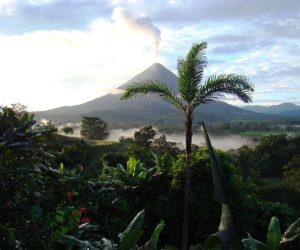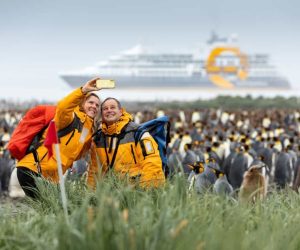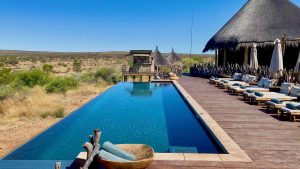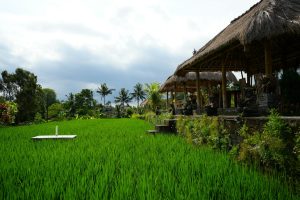
The Australian states of Victoria and South Australia—known as “Australia’s South”—are leading the way in sustainable infrastructure and tourism initiatives to prepare for an ecologically minded and successful reopening to tourism. For instance, both states announced plans to phase out and ban all single-use plastics—but efforts haven’t stopped there.
Adelaide encourages public transportation in the city and is home to the world’s first solar-powered public transport system—Tindo solar electric bus. Meanwhile, Melbourne’s Yarra Trams are 100 percent linked to renewable solar energy and aim to achieve zero-net emissions by 2050. Victoria’s Darebin Council was also the world’s first government body of any level to declare a climate emergency, with more than 38 countries and thousands of towns and cities following suit. Neighboring South Australia claims the title of being the highest producer of wind energy in Australia, and is also on track to position Adelaide as the world’s first carbon-neutral city as part of the “Carbon Neutral Adelaide” initiative.
Victoria and South Australia’s ongoing commitments to supporting local wildlife in their natural habitats has meant a growth in species protection, rehabilitation programs and sustainable accommodations. In 2021, Victoria will open a new koala hospital at Werribee Open Range Zoo, with over 70 percent of the funding coming from donations made to RSPCA Victoria to help support koalas affected by the 2020 bushfires. South Australia’s Kangaroo Island is also restoring wildlife habitat with a local tour operator, Exceptional Kangaroo Island, offering seasonal tree-planting and wildlife monitoring programs for guests. The state is also spearheading Marna Bangara, a rewilding project reintroducing 27 native species to the Yorke Peninsula. In Melbourne, an urban beekeeping initiative, Rooftop Honey, has placed 130 hives on unused roofs, balconies and gardens in an effort to help save the honey bee from environmental threats.
A few can’t-miss wildlife experiences include Echidna Walkabout Tours and Wildlife Wonders in Victoria and Exceptional Kangaroo Island and Arkaba Conservancy in South Australia. In addition, stunning and sustainable off-the-grid accommodations are burgeoning in both destinations, including Oceanview Eco Villas, The Frames Retreats, Clifftop at Hepburn, CABN, Dairy Flat by Lake House and Pink Lake Tiny House.
From a food and beverage perspective, both states continue to lead in vegan-friendly, farm-to-table restaurants, such as Victoria’s Smith & Daughters, Good Love, Sister of Soul or Transformer and South Australia’s The Lost Deli, Allegra Dining Room and Metta Sol. In total, the destinations claim 124 Chef’s Hat-awarded restaurants, with 93 in Victoria and 31 in South Australia.
Both destinations also lead in viticulture and agriculture production techniques. McLaren Vale in South Australia is one of the world’s most sustainable wine regions, producing the largest quantity of organic and biodynamic wines at wineries, including GemTree Wines, Hither & Yon and d’Arenberg. In Victoria, breweries and distilleries like Stomping Ground Brewing Co and Four Pillars Gin have sustainability at the heart of their production. To note: Four Pillars reduces their waste by creating marmalade from the oranges used to flavor their gin and Stomping Ground generates 60 percent of its energy from solar panels, in addition to collecting and recycling rainwater to irrigate their beer garden and indoor plants.
Related Articles
W Melbourne Opens as Brand’s Second Hotel in Australia
Panama Tourism Authority Launches “1,000 Kilometers of Trails”
Tourism Australia Predicts Top Global Travel Trends for 2021
Just Back: Costa Rica






